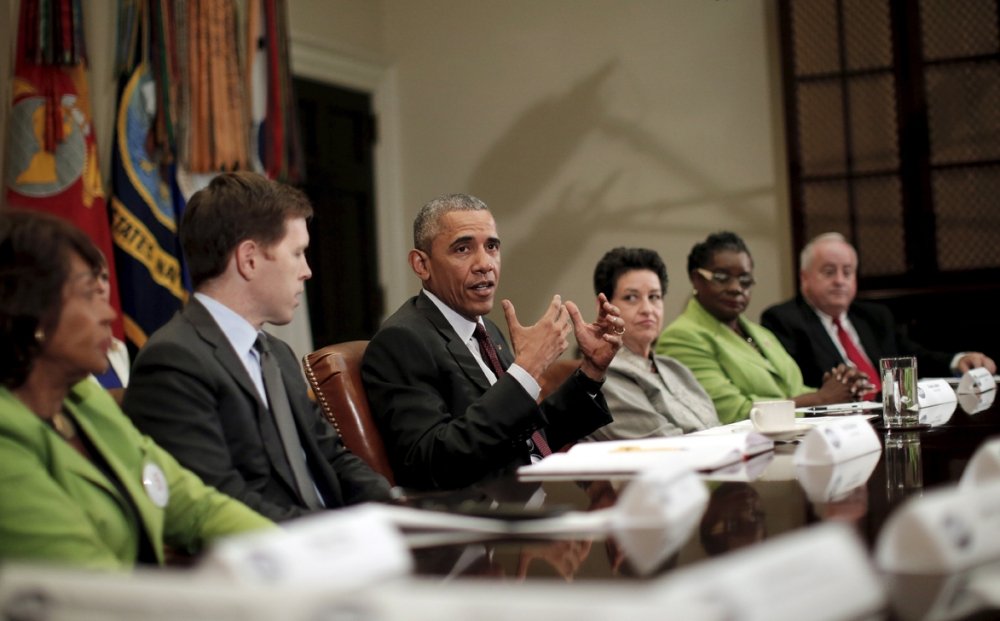Dissolving the Export-Import Bank will Hurt US-Africa Relations
"If not reversed, the Ex-Im Bank’s expiration will hurt U.S. economic relations with Africa, and undermine U.S. credibility in Africa, in three major ways," writes Monde Muyangwa.

In a controversial decision, the US Congress allowed authorization for the Export-Import Bank to expire on June 30, 2015. On Sunday, July 26, the US Senate broke a Republican-led filibuster against reviving the Bank, proceeding to attach its reauthorization to a transportation bill expected to pass later this week. From there, it will pass on to the House of Representatives, where its future is less certain.
This potential demise of the bank, the official export credit agency in the US, raises important questions for the country’s economic competitiveness, globally. Amid the controversy, however, less attention has been given to the impact that this will have on US engagement with emerging markets, particularly those in Africa. If not reversed, the Ex-Im Bank’s expiration will hurt US economic relations with Africa, and undermine US credibility in Africa, in three major ways.
First, the elimination of the Ex-Im Bank will stymie US exports to Africa, and by extension, American job growth.
While US exports to Africa have traditionally accounted for a very small percentage of overall US trade, the numbers have been increasing., The Ex-Im Bank, alongside other US tools and programs, has played a key role in this growth.
In 2013, the Bank approved deals worth $604 million to support exports of US manufactured goods to sub-Saharan Africa. By 2014, that number had increased to $2.05 billion, per a Congressional Research Service report. Eliminating the Bank, therefore, risks reversal of this upward trajectory in US-Africa trade, and jeopardizes associated American jobs.
Second, the abolition of the Ex-Im Bank will undermine overall US-economic engagement with Africa.
The Ex-Im Bank is one of several government agencies that offer a range of programs underpinning US economic relations with Africa. These programs are designed to articulate and reinforce each other. Eliminating the Bank would disrupt the balance.
Critics have argued that the private sector will step up to fill the void left by the Bank’s expiration. Yet history indicates that this will likely not be the case. The challenges faced by small- and medium-size enterprises (SMEs) in obtaining financing are well documented, and this problem is likely to be exacerbated by a poor understanding of African markets. In this context, the Ex-Im Bank, if renewed, could continue to play a bridging role until the private sector is able to step in.
Third, dissolution of the Ex-Im Bank raises questions in Africa about the commitment, trustworthiness, and reliability of the US as partner.
Prior to its expiration, sub-Saharan Africa was one of the Ex-Im Bank’s congressionally-mandated priority areas. The Bank was also a cornerstone for key commitments made at the historic 2014 US-Africa Leaders Summit, including a commitment of over $3 billion in support for US exports to Africa over two years. The bank was also committed to collaborating with the Small Business Administration and International Trade Administration to support the “Doing Business in Africa” campaign, and working with SMEs to facilitate their exports to Africa.
If the Bank is eliminated, Africans will wonder whether the US can be trusted to keep its word and live up to its promises. The President’s visit to Kenya for the Global Entrepreneurship Summit against a backdrop of the controversy over the Ex-Im Bank sends conflicting messages that will not be lost on Africans.
Today, Africa is characterized by a tremendous thirst for economic development, a growing middle class, and an assortment of international partners ready to engage in the economic sphere. Without the Ex-Im Bank, Africa is likely to turn to other more “reliable” international partners—all of whom have their own Ex-Im Bank equivalents which have served to boost their economic engagement with the continent. While the level of SME participation in the Bank needs to increase, de-funding it altogether—with no clear alternative in place—would be a self-inflicted wound with deleterious implications for US-Africa relations.
The opinions expressed here are solely those of the author.
This article was originally published in Quartz.
About the Author


Africa Program
The Africa Program works to address the most critical issues facing Africa and US-Africa relations, build mutually beneficial US-Africa relations, and enhance knowledge and understanding about Africa in the United States. The Program achieves its mission through in-depth research and analyses, public discussion, working groups, and briefings that bring together policymakers, practitioners, and subject matter experts to analyze and offer practical options for tackling key challenges in Africa and in US-Africa relations. Read more










